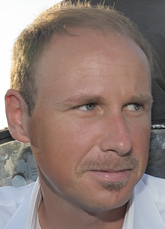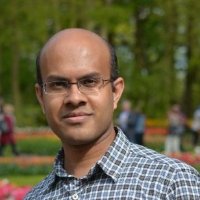


Sundeep Prabhakar Chepuri was born in India in 1986. He received his M.Sc. degree (cum laude) in electrical engineering and Ph.D. degree (cum laude) from the Delft University of Technology, The Netherlands, in July 2011 and January 2016, respectively. He has held positions at Robert Bosch, India, during 2007-2009, and Holst Centre/imec-nl, The Netherlands, during 2010-2011. He is currently a postdoctoral scholar with the Circuits and Systems group at the Faculty of Electrical Engineering, Mathematics and Computer Science of the Delft University of Technology, The Netherlands. His general research interest lies in the field of mathematical signal processing, statistical inference, sensor networks, and wireless communications. He was a recipient of the Best Student Paper Award at the IEEE International Conference on Acoustics, Speech and Signal Processing (ICASSP) in 2015.
